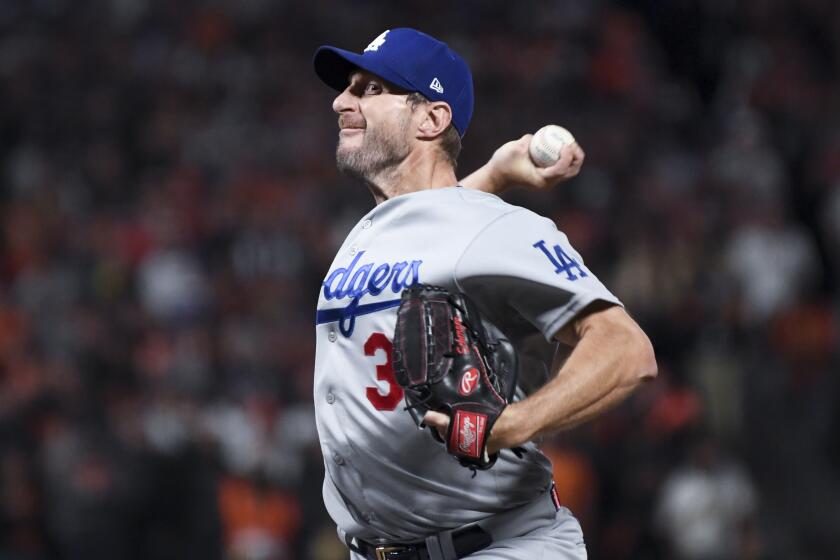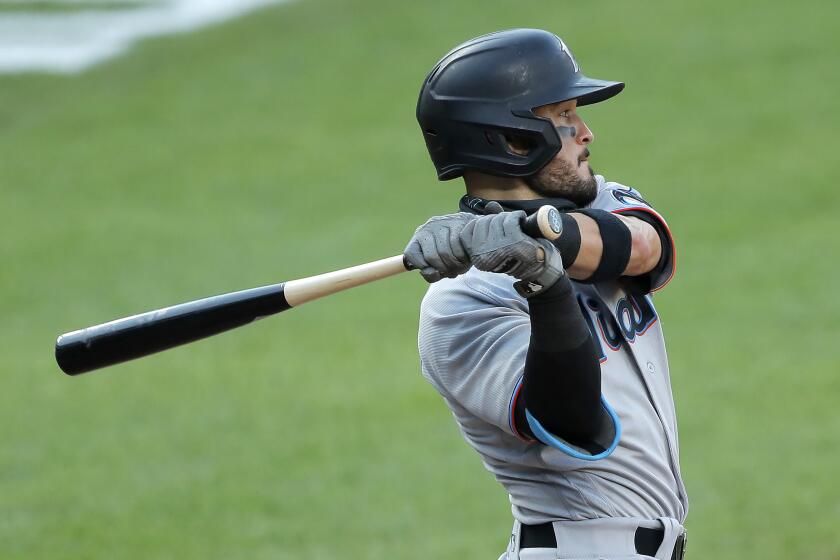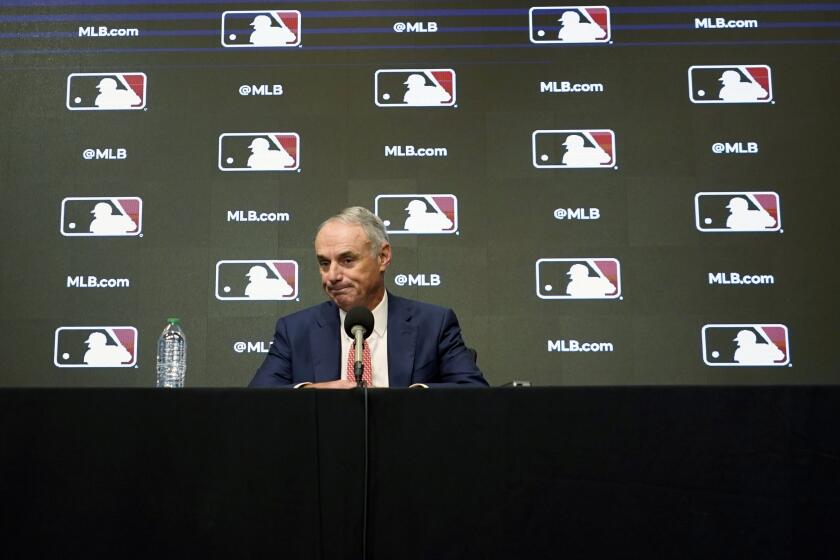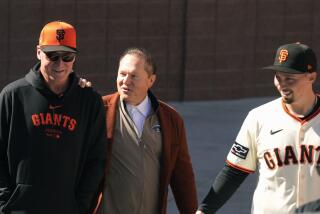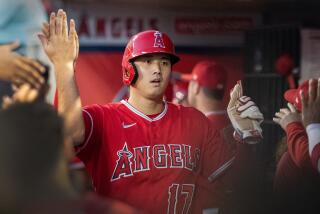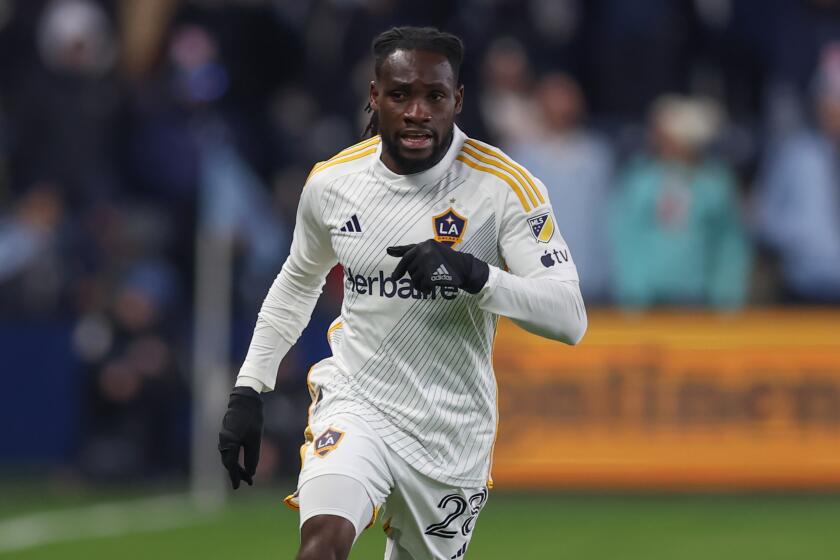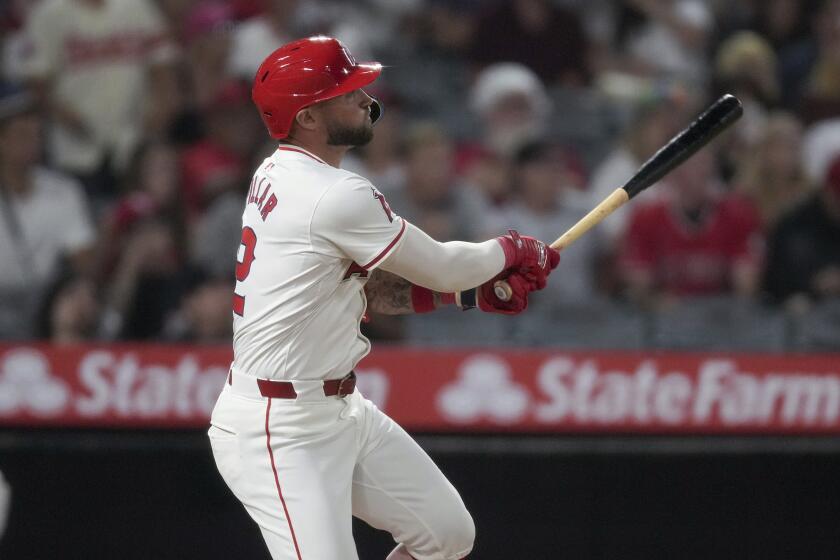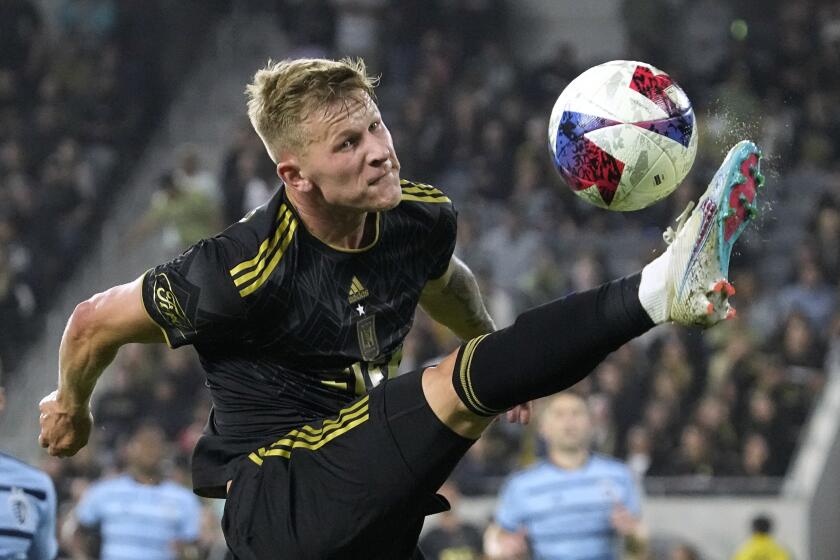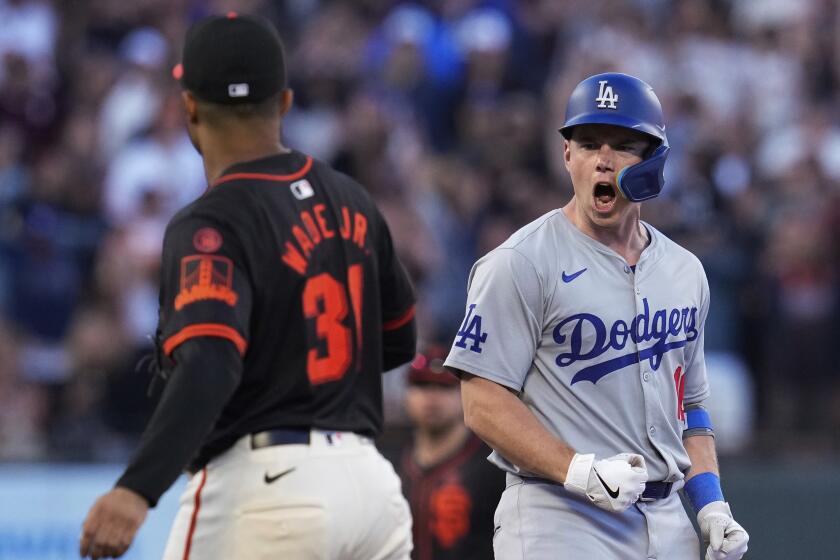Q&A: Max Scherzer says MLB’s integrity is at heart of CBA negotiations
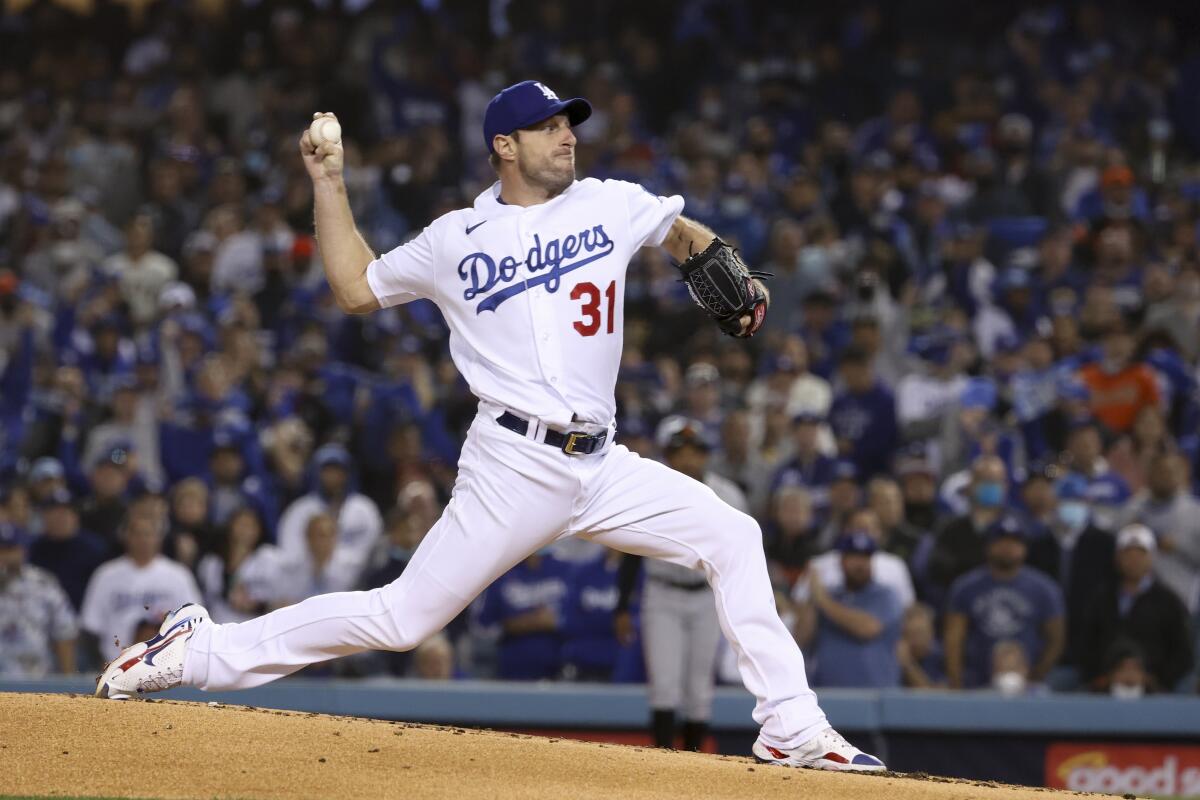
Dec. 1 was an unusual day for Max Scherzer.
That afternoon, he was introduced as the newest member of the New York Mets in a video news conference that included Mets owner Steve Cohen. Cohen chose to commit $130 million over three years to Scherzer, who finished the 2021 season with the Dodgers. The deal set the record for highest average annual value in Major League Baseball history.
Scherzer spoke highly of Cohen. The future Hall of Famer glowed about the billionaire’s willingness to spend money on players to win a World Series. It was a time to celebrate. The good vibes were predictably short-lived.
Hours later, MLB owners locked out their players because, essentially, Scherzer and his peers believe more owners need to take a page from Cohen’s operations manual.
Pitcher Max Scherzer clears the air on how the Dodgers utilized him in the playoffs, saying it didn’t lead to him signing with the Mets.
Scherzer was in Dallas for the conference call as part of the players association’s eight-player executive subcommittee along with Andrew Miller, Francisco Lindor, Marcus Semien, Zack Britton, James Paxton, Jason Castro and Gerrit Cole. At 10:59 p.m. local time, after lackluster last-ditch efforts, the collective bargaining agreement expired and MLB instituted a work stoppage for the first time in 26 years.
The union wants to eliminate purposely losing, or tanking, as a desirable strategy for clubs to a build a contender. It wants teams to pay younger players larger salaries and to eliminate service-time manipulation.
Negotiations are expected to resume this month. Whether a deal is struck before the regular season is affected remains anyone’s guess.
Last week, the Los Angeles Times spoke with Scherzer about the upcoming negotiations and what he and the union seek in a new CBA.
What are you and the union hoping results from these negotiations?
Scherzer: This negotiation is about the integrity of the game from our eyes. We feel as players that too many teams have gone into a season without any intent to win during this past CBA. Even though that can be a strategy to win in future years, we’ve seen both small-market and large-market clubs embrace tanking, and that cannot be the optimal strategy for the owners.
As for the service-time manipulation part, there are other forms of it beyond the obvious Kris Bryant example. Teams are putting long-term discounted extensions in front of players before a player even makes his debut. They’re told take the extension and you will be in the big leagues tomorrow but if you don’t sign it you will stay in the minor leagues. Playing in the big leagues is everyone’s dream, and teams are now leveraging that desire to gain financial control over a player’s career. That’s why the Kris Bryant grievance case is so important to all of us players because if it could happen to him, it can happen to anyone.
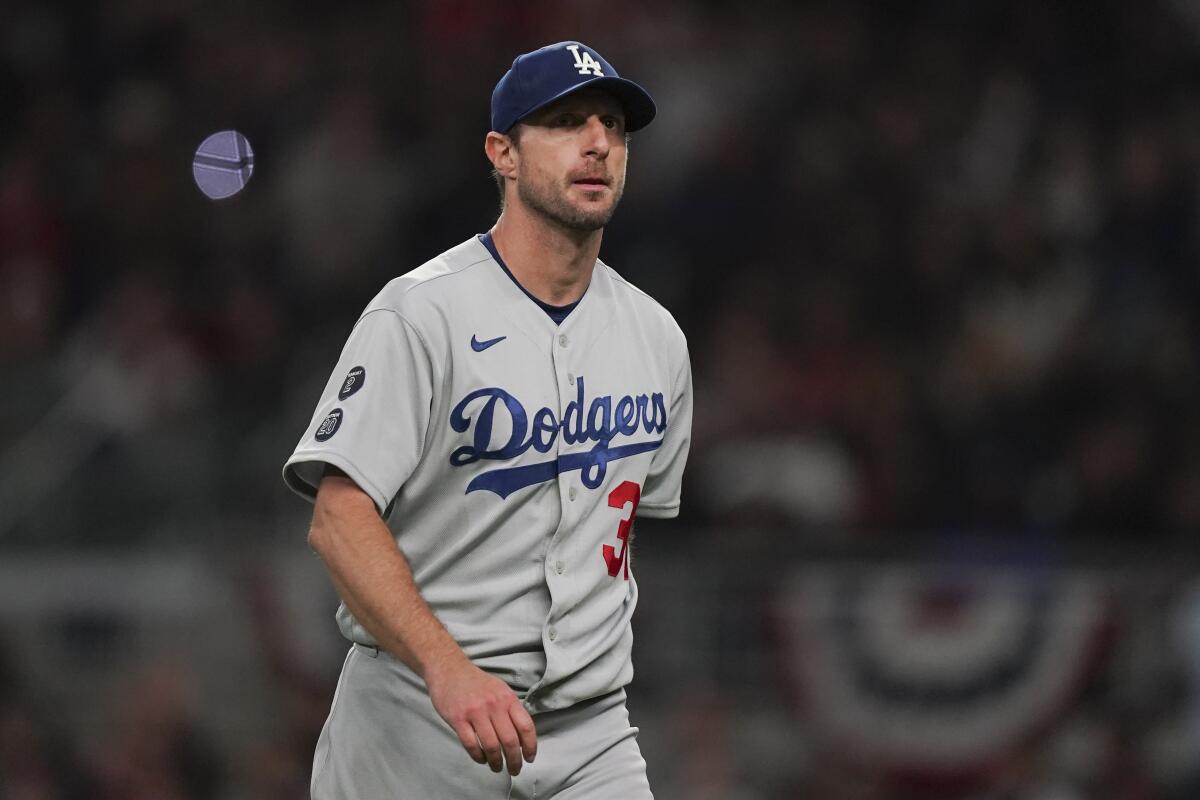
So, is this about paying younger players more?
Scherzer: Well, that’s the kind of third key component to our economic proposals. When you look back at the history of our union, we made a deal called the grand bargain. The grand bargain is that you make less money early in your career so that you can make more money later in your career. Teams have shown that they’re not willing to pay for players’ past production for a whole slew of reasons. And if that’s the case, that’s the case. But if we’re going to look at players that way, then we need to then allocate more money to players earlier in their career. We’re seeing that happen more than ever now, of front offices chiding away middle-class free agents. That’s going at the fundamental part of the grand bargain, and a solution must be found to balance it.
Do you want to make sure your portion of the pie doesn’t diminish if the owners receive new money and/or revenue streams (from gambling, other media deals, etc.)?
Scherzer: We’re not trying to tie ourselves to the revenues. That’s a cap system. We encourage the owners to go out and make as much money as possible, and we respect that. But the free-market economics of the game only work if we have a fully competitive league. Teams that are flush with cash would obviously use the resources on player acquisitions and making their teams better with better talent. However, when you start eroding away the competition, the players’ slice of the pie gets reduced unnaturally.
New Dodgers infielder Eddy Alvarez won silver medals in speedskating at the 2014 Winter Olympics, and in baseball at the Tokyo Olympics.
So, it’s not like the NFL and NBA because they have cap systems? (The NFL and NBA have collective bargaining agreements in which players receive a fixed percentage of the league’s revenues.)
Scherzer: Right. We’re not trying to touch the revenues. We’re kind of the opposite. That was the whole fight in the shutdown too: ‘We’re not tied to your revenues.’
What about the competitive balance tax? The players are against a salary cap, but if the teams are treating it like a cap, then they’re treating it like a cap.
Scherzer: Right, and I think that it’s fair to say that based on team behaviors that teams are treating the luxury tax as a cap more so than the original intent of the luxury tax, which was to prevent breakaway spending. That was how the luxury tax got negotiated in. That’s the concept of how we should see the luxury tax function — to prevent one or two teams completely outspending the rest of the league. That’s not what’s happening in the game today. Look no further than how many teams nuzzled just underneath the threshold in 2021.
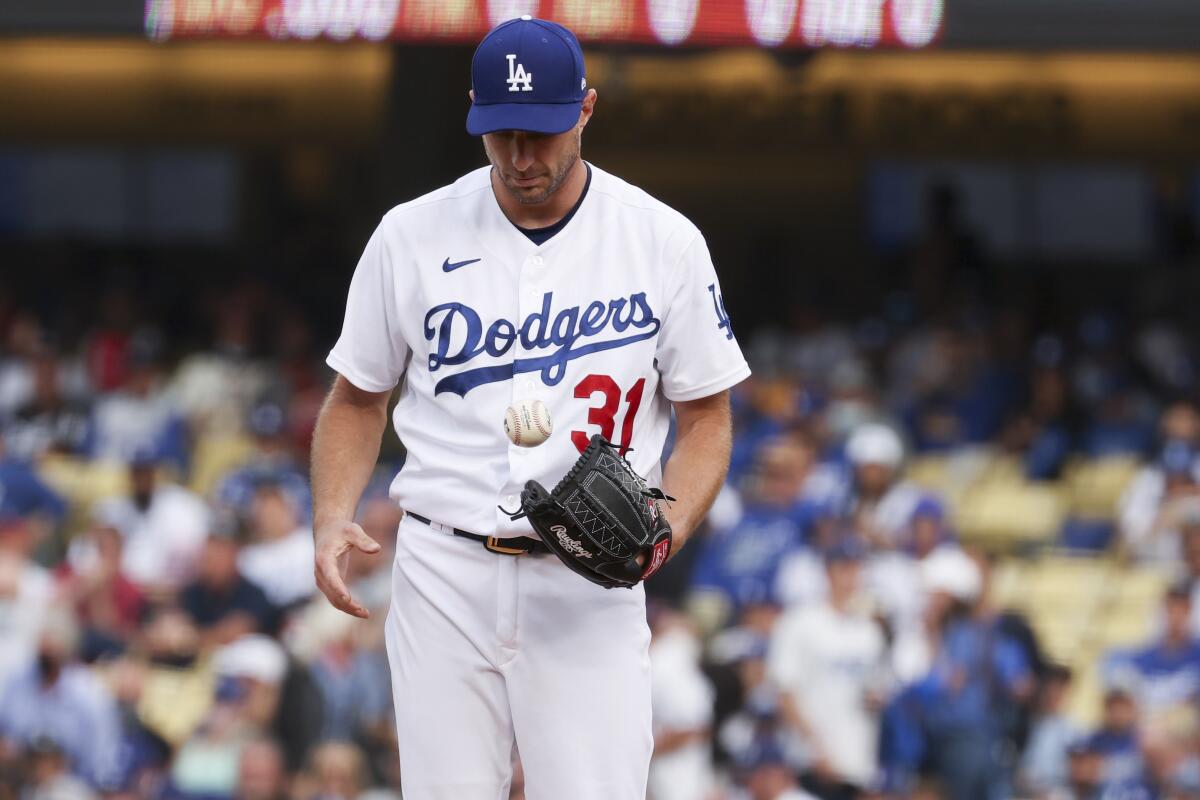
In the days leading up to the lockout, a bunch of players, including yourself, signed big contracts. People could look at that and say, ‘The system works just fine. What’s the problem?’ How do you explain that?
Scherzer: Two parts there. One, the frenzy for the signing at the Dec. 1 deadline was because everyone involved was worried that this lockout could run deep into the offseason. In that event that this lockout continues deeper into the offseason, there would be just a plethora of moves that every team would have to make in a very short amount of time. It’d be much tougher to try to negotiate with the teams and take time to actually sit down with them and discuss all the important topics. And so, that’s why the Dec. 1 deadline acted as a deadline because it was really kind of the last chance to be freely discuss with teams and be able to field offers in a timely fashion. That’s where the incentive came to play to go ahead and sign before the deadline because teams were anxious to make the free-agent type of transactions before the lockout instead of after.
As for the amount of large contracts signed before the lockout, it showed that teams were equally motivated by the lockout to pursue the free agents they wanted because time was not on their side.
MLB commissioner Rob Manfred and players union chief Tony Clark staged separate news conferences Thursday, with each side blaming the other for the lockout.
Ultimately, how much leverage do the players have?
Scherzer: That’s a hard question to answer or to try to actually gauge. And, for us, the way I conceptualize that question and articulate it back is how does every player feel about this. The young players, the veteran players — and up and down the line, every player I’ve talked to, guys who I work out with, we’re all saying the same thing. We all believe in the same thing. Our message has galvanized us in a way that we understand what we’re fighting for. In terms of leverage … it’s more about in terms of strength of our union, this is the strongest I’ve ever seen the union in terms of the entire group of players being on the same page at the same time.
Why do you think that is?
Scherzer: Honestly, I believe that because what we’re fighting for is integrity. It’s about how the game is being played and how the rules of the game are affecting the competition of play. It’s obvious that we see teams tanking. I’m not here to sit here and say an owner is an evil person for tanking, because the strategy can work. But we feel the tanking has increased because of the rigid slot values of the draft picks. The amateur draft and the international market have incredible surplus value. That’s why the top picks are so coveted. The only way the CBA allows teams to get those players is by losing. That has become the winning strategy, yet that shouldn’t be a winning strategy in professional sports. That doesn’t sit well with players, and it affects a lot of different markets and guys’ ability to live out their dreams to play baseball. Additionally, when you have that tanking component in there, it also leads to service-time manipulation. As these teams gear up for their window, watching teams manipulate prospects’ clocks is wrong. It’s changing free agency from what it was supposed to be. Free agency’s supposed to be six years, and they’re manipulating it into seven years and that’s not OK in our book. And that’s a work stoppage issue for us. And so, like I said, all the players understand that and we’re willing to fight for that.
Is there a target date for a deal? Do you think you’ll have the season start pushed back?
Scherzer: It’s too hard to even speculate what the future looks like. You’re just in limbo right now. You’re training ready to be good to go for when spring training starts. If that doesn’t happen, then you make different decisions based on that. But until that happens, you have to have the mentality that we’re going to be playing on time. Any other kind of speculation is just hearsay.
More to Read
Get our high school sports newsletter
Prep Rally is devoted to the SoCal high school sports experience, bringing you scores, stories and a behind-the-scenes look at what makes prep sports so popular.
You may occasionally receive promotional content from the Los Angeles Times.

